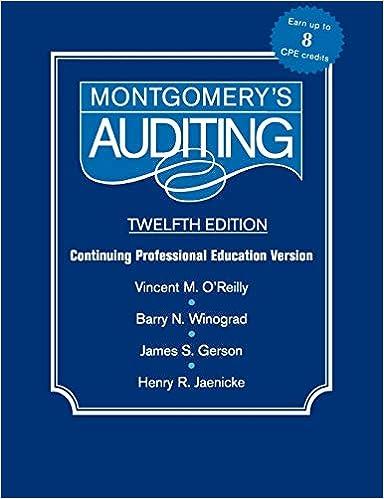Question
Adelle and Steve (the taxpayer) searched for vacant land upon which to build a main residence in 2019. They found a property (the Property) which
Adelle and Steve (the taxpayer) searched for vacant land upon which to build a main residence in 2019. They found a property (the Property) which they liked but it was too large for their needs.
The taxpayers came to find through real estate agents that council zoning in the area had changed to allow such larger lots to be subdivided into smaller lots. Given the absence of smaller blocks and a need to relocate, the taxpayers made initial enquiries if a subdivision was possible of the Property. They were advised it was possible.
The taxpayers bought the Property in July 2019 with the knowledge that the surplus land in excess of their requirements could be subdivided and sold off.
The taxpayers have resided on the property since acquisition and intend on doing so for the foreseeable future and have renovated the existing buildings.
Within a month of the Property settling, the taxpayers commenced the process of subdividing the property to effectively create 3 titles. The existing title with the dwelling on it is to remain as the taxpayer's main residence, the two newly created titles are to be sold as vacant land.
Within 12 months of purchase conditional approval was given by the council for the subdivision. A town planner, surveyor and environmental engineer were initially engaged to prepare a submission to council for approval. Contractors were subsequently engaged to complete the access roadway, electrical and telecommunications conditions as required by council.
The development of the land was only to the extent of council requirements for the approval. The works are completed. The taxpayers did not seek any borrowings from financial institutions to fund the subdivision costs relying on earnings derived from their business, which they operate through a company structure.
The subdivided land was listed for sale in February 2021.
Required
Discuss with reference to appropriate legislation, case law and/or rulings whether the receipts from the land sales will be considered ordinary income under s 6-5 ITAA97 during the current income year. You do not have to apply the capital gains tax rules here. You must refer to relevant legislation, case law and/or rulings in answering this questio
Step by Step Solution
There are 3 Steps involved in it
Step: 1

Get Instant Access to Expert-Tailored Solutions
See step-by-step solutions with expert insights and AI powered tools for academic success
Step: 2

Step: 3

Ace Your Homework with AI
Get the answers you need in no time with our AI-driven, step-by-step assistance
Get Started


